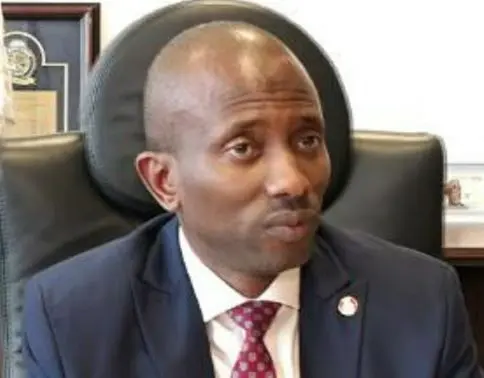Corruption has long been a pervasive challenge within Nigeria’s political, economic, and social landscape. The detrimental impact of corruption on a nation’s progress cannot be overstated, and it is imperative that the Nigerian government take proactive and decisive steps to fight this deeply entrenched issue. The battle against corruption is not merely a matter of principle; it is a fundamental necessity for Nigeria’s future well-being and growth.
Corruption acts as a significant roadblock to development and progress. It diverts resources away from critical sectors such as education, healthcare, and infrastructure, resulting in subpar services and diminished quality of life for citizens. When funds meant for public welfare are misappropriated, the very foundation of social and economic growth is compromised.
Corruption distorts the principles of fair competition in both public and private sectors. Nepotism and bribery can lead to unqualified individuals securing important positions, undermining meritocracy and inhibiting innovation. This not only hampers economic growth but also perpetuates a cycle of
The erosion of public trust in government institutions is a direct consequence of corruption. Citizens lose faith in systems meant to serve their interests when they perceive that these systems are driven by ulterior motives. The resulting disillusionment can fuel social unrest, unrest, and hinder the nation’s unity.
Foreign investors are cautious about committing resources to countries where corruption is rampant. Corrupt practices can lead to a lack of transparency in business dealings, making it difficult for foreign investors to navigate the landscape with confidence. In turn, this restricts the inflow of capital, technological transfer, and job creation.
Nigeria’s fight against poverty is directly impeded by corruption. Funds allocated for poverty alleviation programs and social safety nets can be siphoned off by corrupt officials, leaving vulnerable populations without the support they desperately need. This perpetuates a cycle of poverty that the government aims to break.
Fighting corruption goes hand in hand with improving governance standards. Effective governance is predicated on transparency, accountability, and the rule of law. By eradicating corruption, the Nigerian government can establish itself as a model of ethical leadership, inspiring trust and cooperation among citizens.
Nigeria’s international reputation is intricately linked to its ability to combat corruption. A government that actively fights corruption signals to the international community that it is committed to upholding the highest standards of ethical conduct. This, in turn, fosters diplomatic relations, trade partnerships, and positive global perceptions.
Corruption exacerbates socio-economic disparities by concentrating resources and opportunities in the hands of a few. When public funds are embezzled or misused, marginalised populations are denied access to basic services and opportunities for upward mobility. A concerted effort to fight corruption can promote a more equitable society.
When citizens see tangible progress in the fight against corruption, it encourages them to actively participate in governance processes. Citizens are more likely to engage in voting, civic activities, and advocacy when they believe their voices can bring about meaningful change. This empowers individuals to be agents of progress.
The fight against corruption is a formidable challenge, but it is a battle that Nigeria cannot afford to lose. A concerted effort that involves comprehensive reforms, stringent anti-corruption measures, and the active engagement of civil society is essential. The Nigerian government must prioritise the development of independent and robust institutions that can effectively investigate and prosecute corrupt individuals.
Nigeria’s future prosperity hinges on its ability to create a clean, transparent, and accountable governance framework. By fighting corruption, the Nigerian government is not only upholding the principles of justice but also laying the foundation for a more just, equitable, and prosperous nation. The road ahead may be challenging, but the destination is worth every effort.





